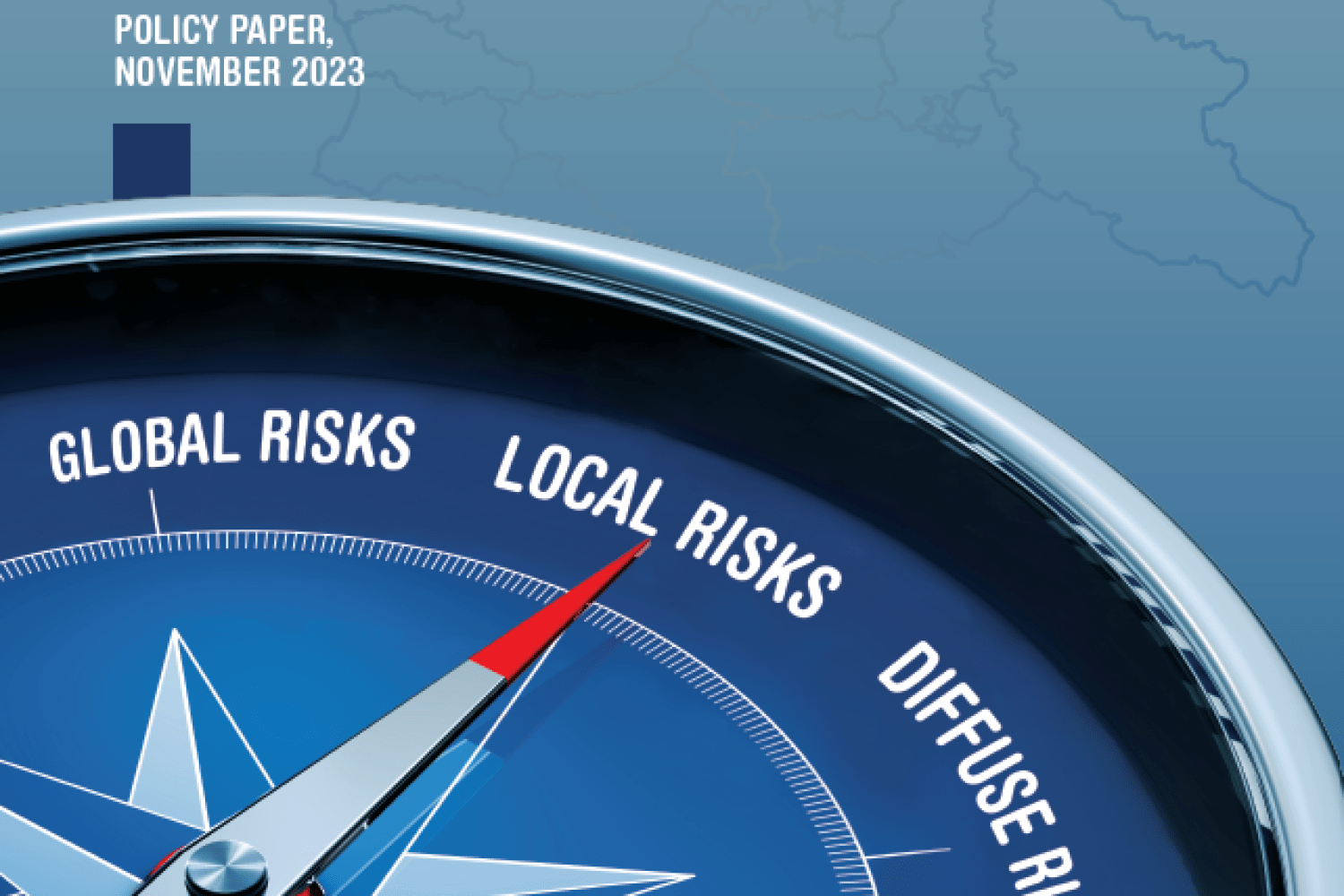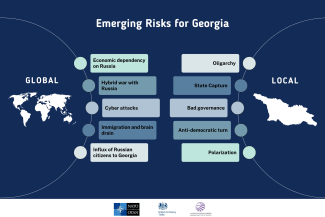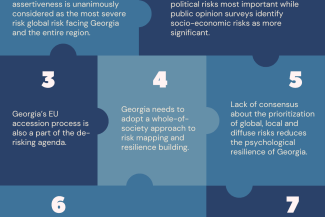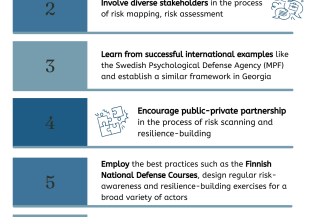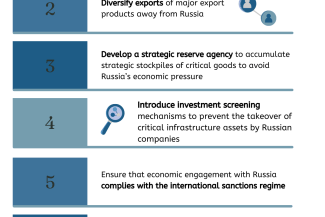2023-12-22 07:52:24
Russia’s unprovoked aggression against Ukraine and subsequent confrontation between Moscow and the West has had far-reaching implications for the entire Black Sea region, including Georgia. For Georgia, a country that has historically navigated complex regional dynamics, the situation in Ukraine holds particular significance, as the country’s strategic location makes it vulnerable not only to the spillover effects from the Ukrainian conflict but also to recent tensions in the Middle East. The protracted nature of these ongoing regional conflicts has not only exposed Georgia to increasing risks and challenges but has also led to a reassessment of defense and security strategies. These challenges have compelled Tbilisi to adapt its security policy to a constantly evolving geopolitical landscape, effectively addressing emerging global risks, and fortifying its resilience against the uncertainties of the global geopolitical arena.
This policy paper is a continuation of the first policy document which argued for Georgia to develop a comprehensive cross-sector resilience strategy based on a whole-of-society approach (Kakachia, Lebanidze, and Kandelaki 2022). The document identified four important components of resilience-building (institutional/legal, societal, political and public private) and proposed measures to strengthen them (Kakachia, Lebanidze, and Kandelaki 2022, 3). The comprehensive analysis, identification and management of risks – both of global and local nature – is an important aspect of resilience building. Therefore, current policy paper will analyses key global , diffuse, and local risks that Georgia faces, and identify means the country can use to increase its national resilience and tackle risks more effectively.
In this challenging time marked by political crisis, understanding the multiplicity of risks the country faces and looking for ways to prevent them from turning into existential threats is of utmost importance.
This Paper borrows a definition of risk published in the NATO Review: “Risk is the probability of loss, injury, or other adverse outcome” (Cocron and Lawrence 2022). The risks “can be estimated and calculated based on our knowledge of prior outcomes and conditions” (Cocron and Lawrence 2022).
Resilience, on the other hand, is identified as a mechanism to prevent and counteract global and local risks. Resilience from this perspective has two major dimensions: “bouncing back” and “moving forward” dimensions. Bouncing back means identifying, responding to and recovering from crises with a minimum amount of disruption while moving forward means self regulating process of building risk preemptive capacity at peaceful times (cf. Chandler 2014, 5). NATO’s own definition of resilience combines the both dimensions:
Resilience is the individual and collective capacity to prepare for, resist, respond to and quickly recover from shocks and disruptions, and to ensure the continuity of the Alliance’s activities” (NATO 2022).
Considering the limited state and societal capacity of Georgia, proper scanning and adequate prioritization of global and local risks should be part of a resilience strategy for the country.
The paper starts with a comprehensive mapping of global, diffuse, and local risks the country faces. To do so, it relies on three data collection tools: expert survey, content analysis of state documents, and analysis of public opinion surveys conducted over years by reputable institutions.
The main contribution of this paper is a comprehensive expert survey which illustrate how civil society, the policy community and academia perceive major risks. Overall, 36 Georgian experts were surveyed who specialize in Georgian domestic politics as well as foreign and security policy. We acknowledge the limitations of the survey as the majority of surveyed experts belong to the policy community and work either on foreign and security policy or broad domestic political dynamics. Still, the respondents were carefully selected based on their knowledge of Georgia’s political context and party-political neutrality. After discussing the survey results, the paper proceeds with a comparative analysis of risk perceptions in the policy community, the population and the government. This is an important analytical exercise to showcase to what extent the key actors have a common perception about major risks and challenges facing the country. The generated insights show significant divergences in perceptions about which global and local risks are most detrimental for the country’s resilience and preparedness to tackle risks.
In the second part, the policy paper singles out the Russian presence in the region as the single most significant global risk as assessed by the expert respondents and analyze how the state and society can best cope with it. For this, we also look at public opinion surveys as well as strategic documents and state policies to assess societal attitudes and the state’s approach and readiness to tackle it.
The paper concludes by mapping global, diffuse, and local risks in tandem with resilience areas. This provides a helpful analytical framework to explore how state and societal resilience can be strengthened and risks mitigated. It also helps show how these two sides of the risk-resilience nexus can complement each other. Specifically, the paper advocates for a whole of society approach as a central part of resilience building to close the gap among key actors regarding risk perceptions. The paper concludes with recommendations for the Georgian government, civil society, and the international community.
Policy Paper #39 | November 2023
This publication was produced with the financial support of NATO’s Public Diplomacy Division and British Embassy in Tbilisi. Its contents are the sole responsibility of the authors and do not necessarily reflect the views of the NATO’s Public Diplomacy Division and the Georgian Institute of Politics.
VIEW INFOGRAPHICS 👇






